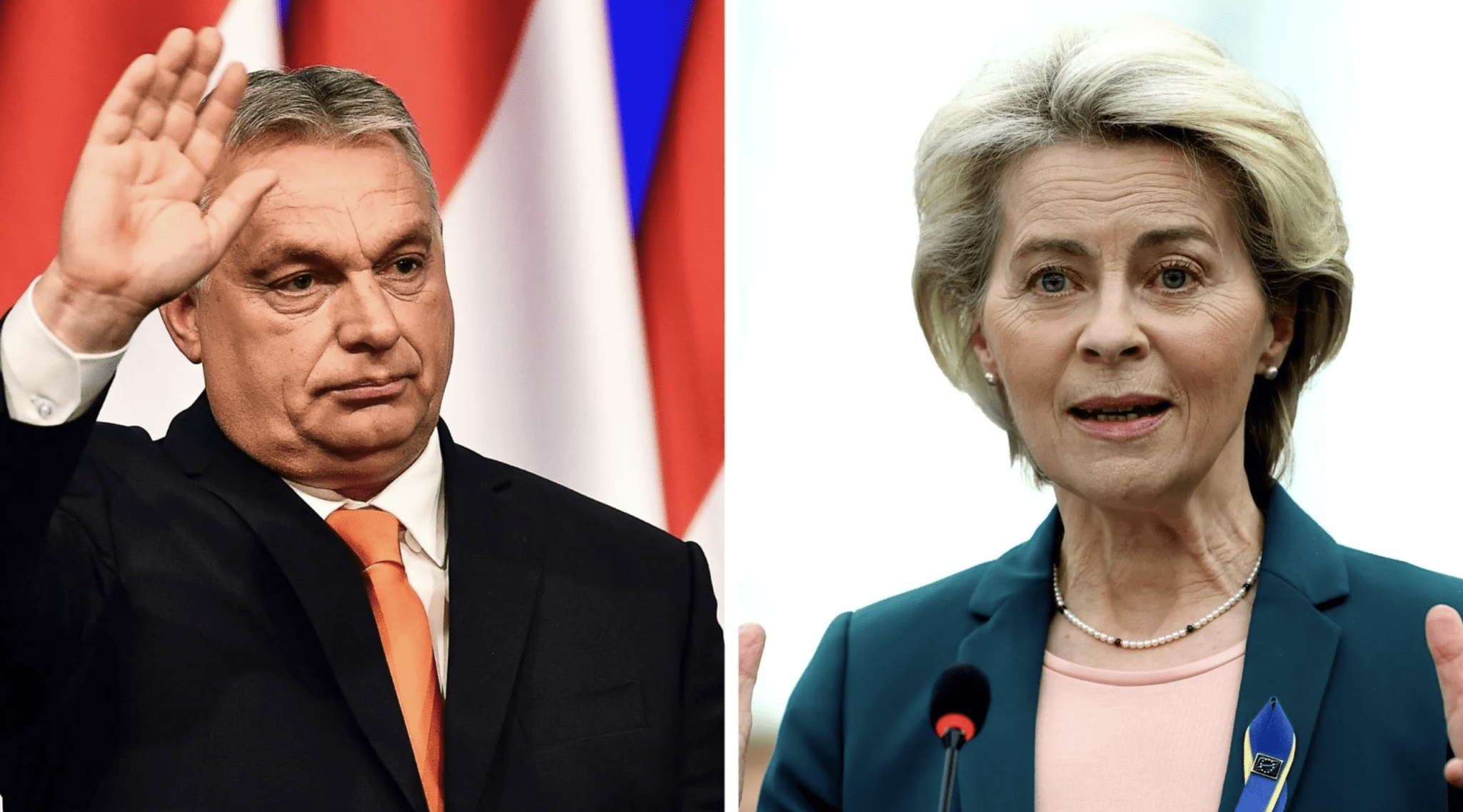Just two days after Viktor Orbán won a resounding victory in Hungary, the European Commission has triggered a new mechanism that will see Hungary’s funding from the bloc cut over alleged rule of law breaches, Commission President Ursula von der Leyen announced on Tuesday.
Speaking after his victory in Hungary, Orbán addressed the EU directly are claiming a “great victory” in Sunday’s general election for his Fidesz party. The Hungarian leader said: “We have won a great victory — a victory so great you can perhaps see it from the moon and certainly from Brussels.”
It appears clear that Brussels heard Orbán’s speech and is promptly responding. The result of the election is likely viewed as a direct threat to Brussels after Orbán’s Fidesz party scored more than 53 percent of the vote in an election landslide that appeared to surprise the liberal establishment. Retaliation against not only Orbán, but Hungarians as a whole for voting for his conservative government, may now lead to cuts worth millions of euros, with those funds normally going to building roads, funding schools, and environmental protection.
[pp id=31209]
Speaking from Strasbourg, von der Leyen claimed that Hungarian authorities had already been notified of the move which will see Hungary’s portion of EU funds frozen until the country’s government announces legal reforms which fall back in line with the commission’s so-called values, which likely means LGBT education in classrooms and an open borders agenda.
The Commission was given the green light to proceed with the withholding of funds earlier this year when the European Court of Justice held the punitive measures were proportionate and lawful.
“We’ve carefully assessed the result of these questions,” von der Leyen said, responding to a question about the Commission’s latest position. “Our conclusion is we have to move on [to] the next step.”
The dominant left-liberal mainstream has long sought to punish Hungary and Poland over ideological differences related to migration, LGBT issues, family values, and border security. One of the key players aligned against Hungary, the billionaire oligarch George Soros — who backs a well-funded web of NGOs, media and lobbyists — wrote in 2020 about his desire to punish Hungary using a sanctions mechanism.
“I call on the EU to make Hungary a test case,” Soros wrote in a statement urging Brussels to use sanctions against the country.
[pp id=33048]
Orbán, who has long opposed Soros, has been clear about the threat he poses to Europe, writing in 2020, “The greatest threat to national self-determination today is the global network of open society advocates which seek to abolish national governance. The goals of George Soros’s network with unlimited financial and human resources are clear. By accelerating migration, they will create mixed-ethnicity, open societies in order to dismantle national decision-making and put it in the hands of the global elite.”
The sanctions against Hungary represent the first time the European Commission has used the mechanism against a member state, which was introduced in 2020 after both Hungary and Poland launched legal proceedings to question its legality.
EU commissioner for Budget and Administration Johannes Hahn also announced that he will “take action with Hungary and set the mechanism in motion – because of suspicions of corruption and problems with public procurement.”
The EU, sensing that it cannot defeat Orban at the polls, could now be looking to impoverish the country.
In response, Hungarian cabinet minister Gergely Gulyás slammed the Commission in the Hungarian press for effectively punishing voters for reelecting Viktor Orbán in Sunday’s general election. He questioned the timing of the decision, and called on the commission to stop attempting to meet the needs of the now-defeated Hungarian left and to return to common sense.
The process of cutting Hungary’s EU funds is expected to take time, and there will be much back-and-forth between Brussels and Budapest. Any funding cut or reduction needs a “qualified majority” to pass, which means 55 percent of the EU countries adding up to 65 percent of the EU’s population need to remove Hungary’s funds. It is likely that the EU could find the votes, but such an end result is not set in stone.





